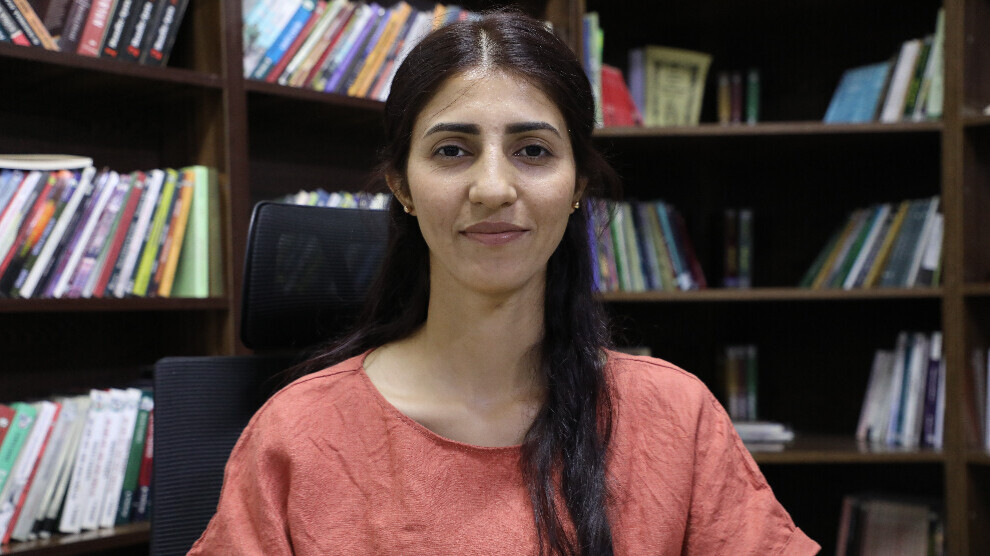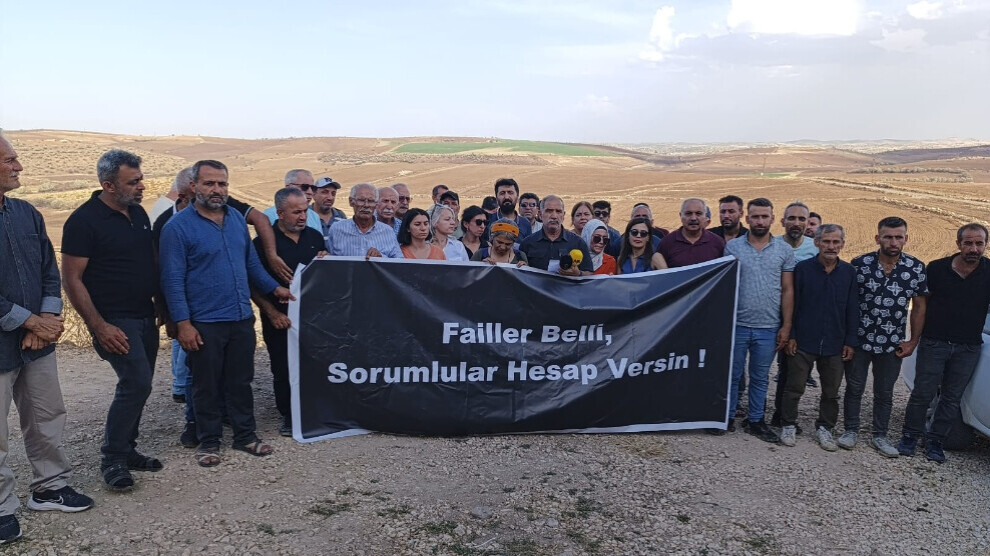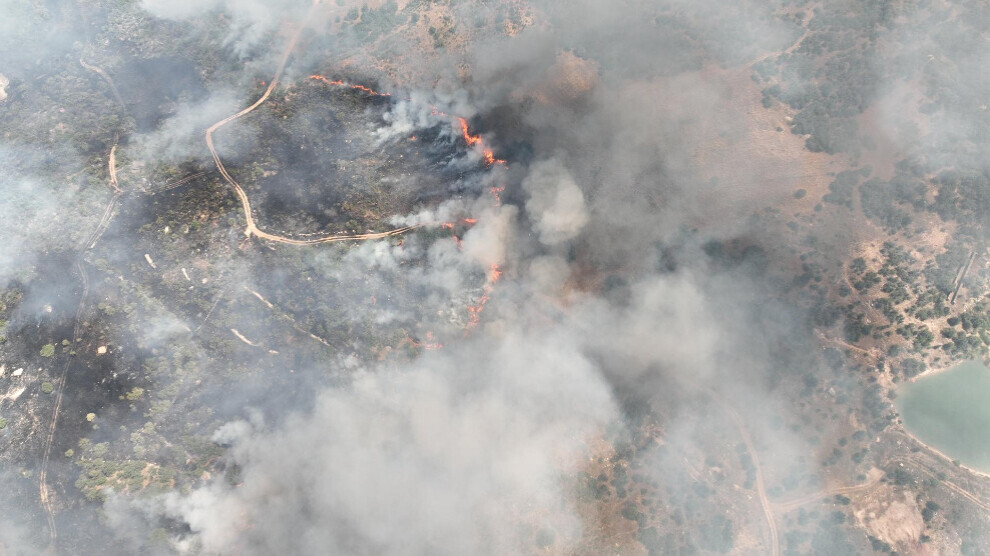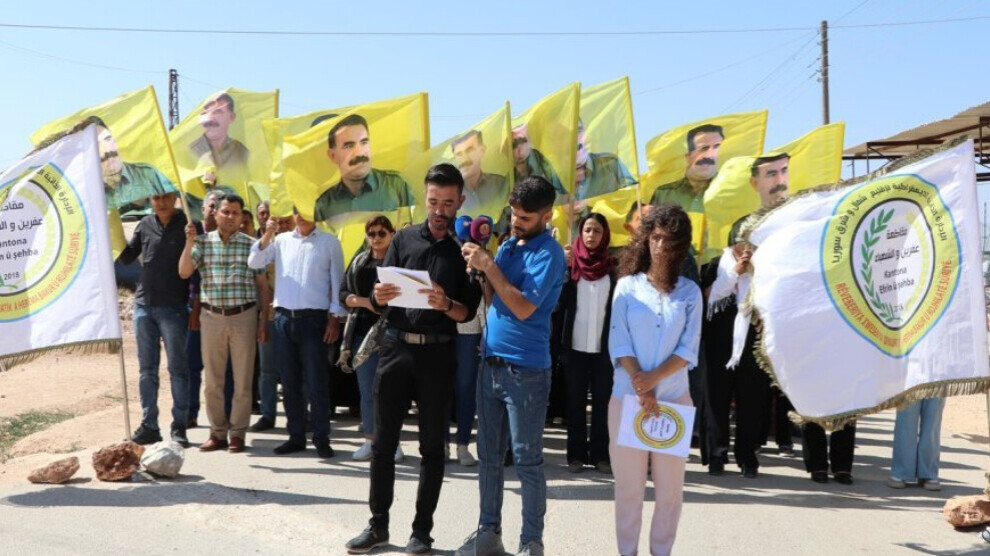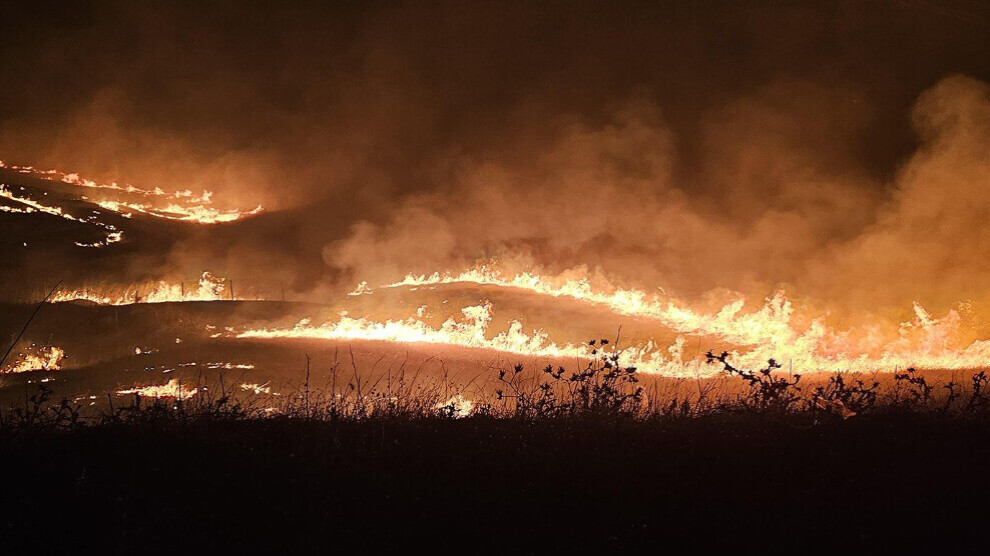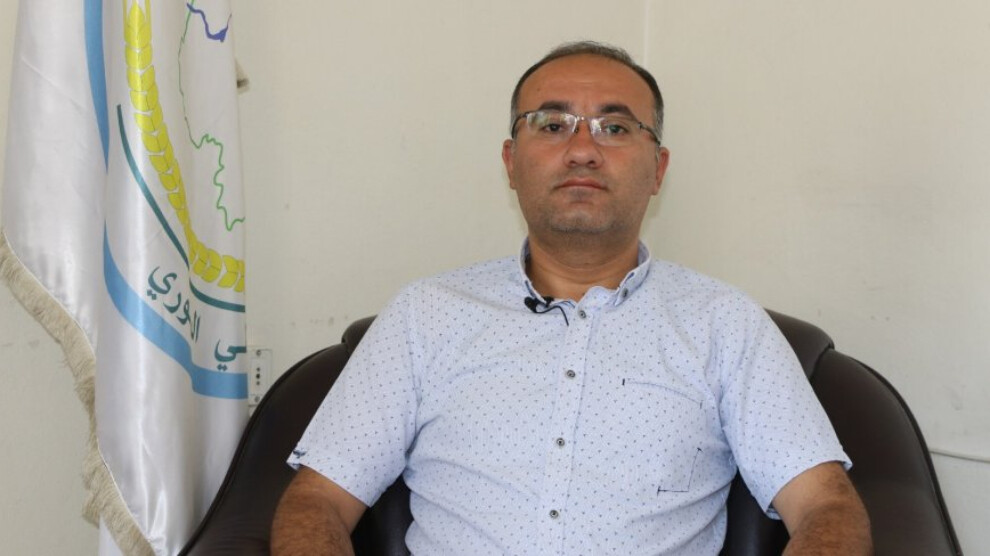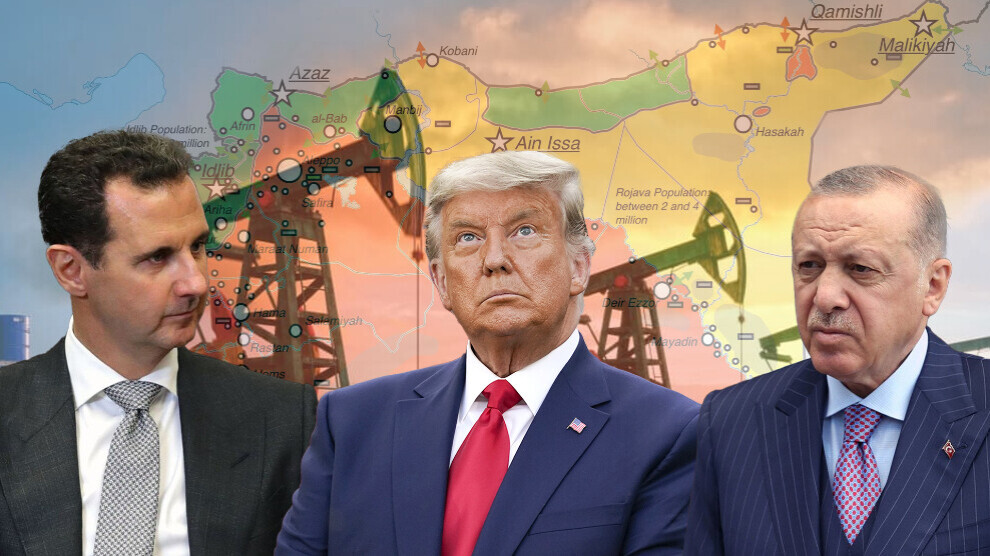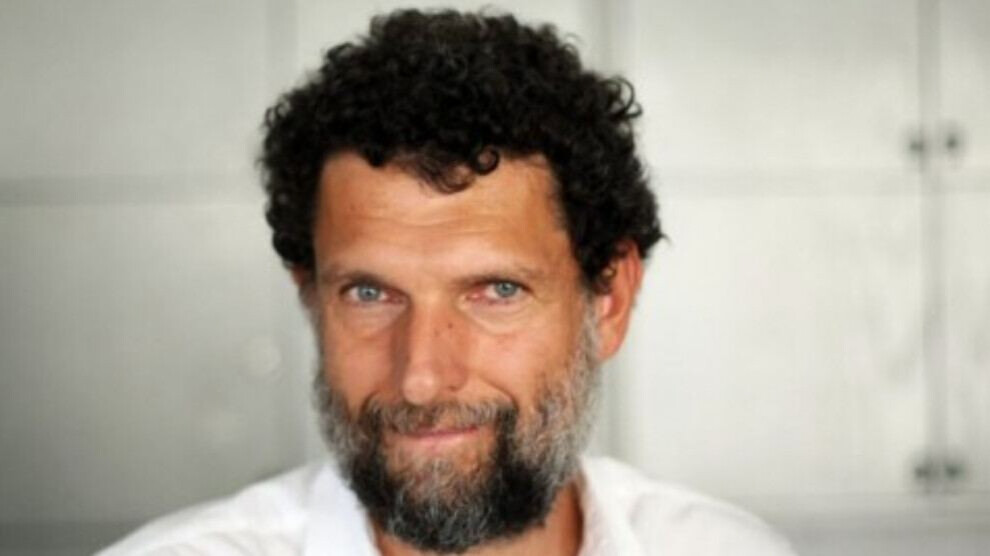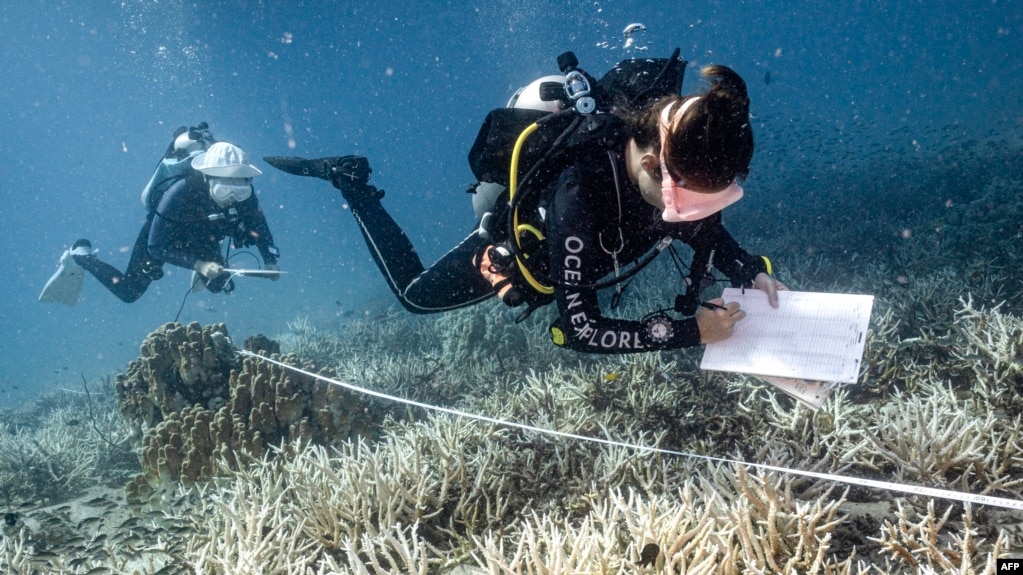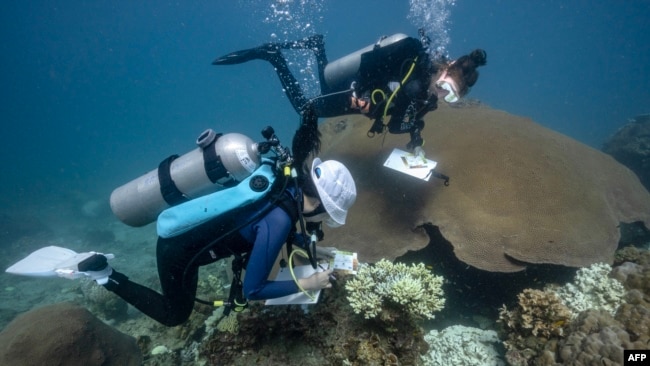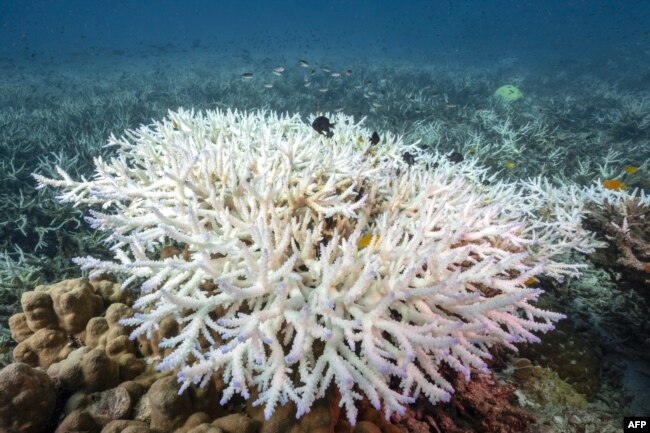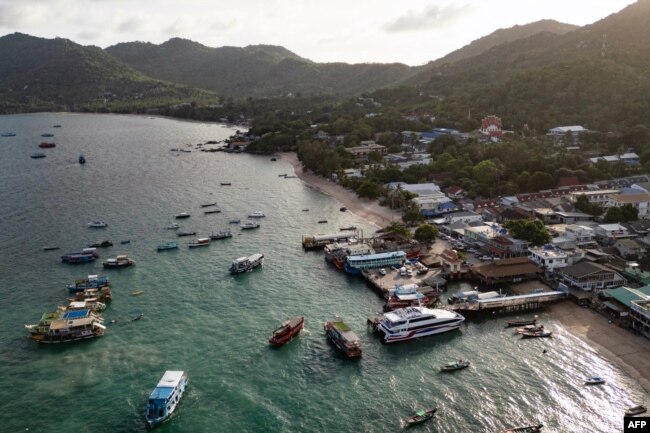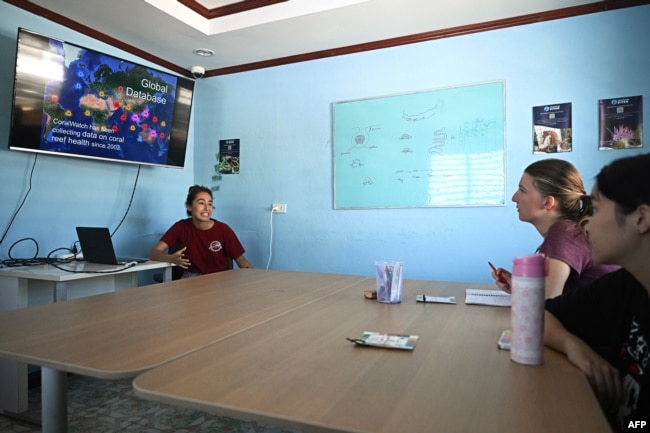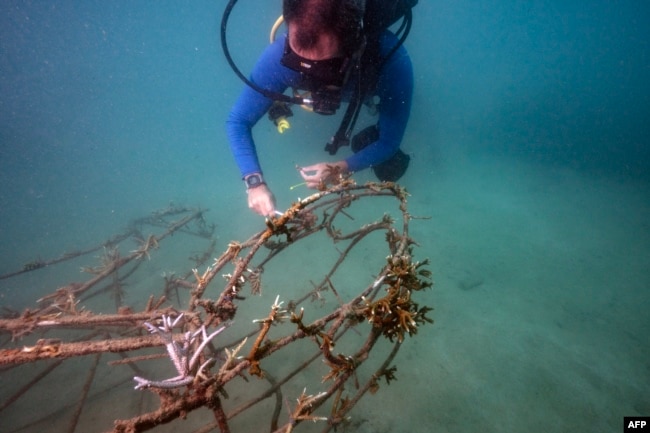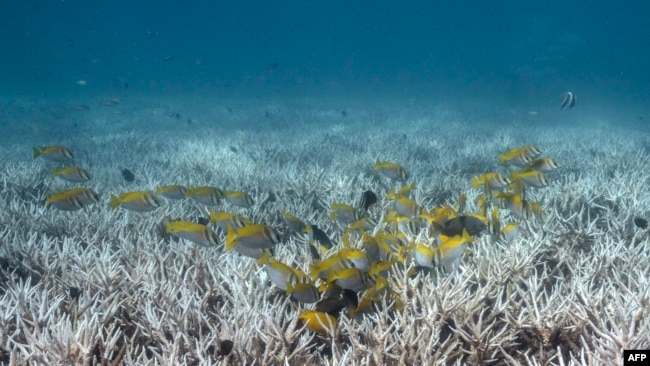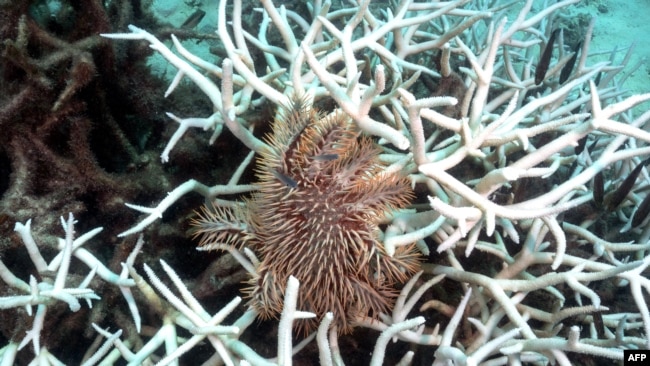“When you send us to war, you are not sending us to negotiate; you are sending us to kill… We are born with the idea that we should not kill, and now you tell me to go to war and kill all the enemies. Over time, the idea that I have the right to kill becomes normal, and we no longer ask why. The only questions we ask when we go to war are, how do we kill?” This was part of the response from Ami Ayalon, the former head of Israel’s Shin Bet security agency, in a recent interview with CNN’s well-known anchor Christiane Amanpour. She asked him about the Israeli army’s actions in Gaza: “Do you feel that they (the soldiers) lose their morality and humanity?” He replied: “We lose our identity as people, as Jews, and as humans…” The discussion came after videos were circulated showing a wounded young man from the city of Jenin in the West Bank, tied to the hood of an Israeli military vehicle as it moved. Palestinian sources interpreted this as the Israeli use of the injured young man as a human shield during the raid on the city. This violation is not an isolated incident but recurs without accountability. Over the past eight months, since the start of Israel’s genocidal war against Gaza, the internet has been flooded with videos documenting the Israeli army’s violations, such as torturing detainees, killing civilians, raiding homes, and destroying them. Many of these images and videos were posted by Israeli soldiers themselves, as a form of bragging, representing a disgusting moral phenomenon. There are also testimonies from soldiers who defected or refused military service, confirming the crimes. These clips serve as legal documents that can be used in international courts against Israel for violating international criminal law. This documentation not only confirms the collapse of moral and human barriers and controls among the members of “the most moral army in the world,” but also indicates that these soldiers feel they can do anything as long as they are protected by their state and by major capitals that politically and militarily support Israel in its war. Israel itself constantly criticizes, attacks, and even hinders the travel of officials from international human rights organizations or the United Nations openly and continuously due to their positions on the Israeli army’s actions. Israeli Foreign Minister Eli Cohen went so far as to revoke the residency visa of the UN humanitarian coordinator Lynn Hastings. Israeli Ambassador to the UN Gilad Erdan even threatened to withdraw Israel from the UN and to deny visas to its officials “to teach them a lesson,” accusing the UN of anti-Semitism and calling for its funding to be stopped. Francesca Albanese, the UN Special Rapporteur on the situation of human rights in the Palestinian territories occupied since 1967, faced threats for accusing Israel of committing acts of genocide. Israeli Prime Minister Benjamin Netanyahu himself dared to belittle the UN, considering it “has placed itself on the wrong side of history.” And the list goes on and on… The Tale of “The Most Moral Army in the World” Among the claims circulated in Western media and political circles is the assertion that the Israeli army is “the most moral army in the world.” This description, heavily promoted by Israeli leaders and their international supporters, including politicians, media figures, and retired officers and generals, aims to present an ideal image of the Israeli army’s performance in the ongoing Israeli-Palestinian conflict, particularly concerning its adherence to the laws of war and the protection of human rights. This hollow phrase continues to be upheld despite accumulating evidence pointing to acts of genocide in Gaza and severe violations of those laws in both Gaza and the West Bank. One of the most striking phenomena resulting from the Israeli war on Gaza is the increasing number of videos showing Israeli soldiers committing acts that fall under the category of crimes against humanity, a phenomenon that continues without deterrent. What drives an increasing number of Israeli soldiers to commit such atrocities and document them themselves? What strategies does Israel employ to shape and mold the Israeli human self, producing this model of a soldier who commits horrific acts? The search for an answer must start with the policy of dehumanizing Palestinians. Once a mindset capable of demonizing the other is established, it becomes easy to violate their body, either through direct killing or torture, and their property, whether through confiscation, demolition, or vandalism. Numerous videos have spread in recent months showing Israeli soldiers engaging in such practices. The violation of Palestinian property has extended to the confiscation of their men’s and women’s clothing, even their underwear, as if they were spoils of war. The soldiers themselves post videos and photos proving these violations on their personal social media pages. According to Adama Dieng, the UN Special Adviser on the Prevention of Genocide and former Registrar of the International Criminal Tribunal for Rwanda: “Genocide is not an accidental event, nor is it inevitable. Genocide is a process that develops over time. To be able to engage in the level of violence associated with genocide, perpetrators need time to develop the capacity to do so, mobilize resources, and take concrete steps that will help them achieve their goal.” A Zionist Strategy to Entrench Extremism and Racism No individual, no matter how extreme their ideas may be, can commit heinous crimes on their own. Committing individual murder is not easy, let alone mass murder. The process of transforming extremist ideas—whether Zionist, Islamic, or otherwise—into actions that reach the level of genocide requires a massive apparatus for propaganda, recruitment, mobilization, funding, planning, and execution. Without this apparatus, these ideas remain limited in scope, regardless of the crimes committed. An integral part of this process, which paves the way for turning extremist ideas into tools for mass killing, is establishing a psychological and social strategy that removes guilt and responsibility from the individual. Genocide is not an
“When you send us to war, you are not sending us to negotiate; you are sending us to kill… We are born with the idea that we should not kill, and now you tell me to go to war and kill all the enemies. Over time, the idea that I have the right to kill becomes normal, and we no longer ask why. The only questions we ask when we go to war are, how do we kill?”
This was part of the response from Ami Ayalon, the former head of Israel’s Shin Bet security agency, in a recent interview with CNN’s well-known anchor Christiane Amanpour.
She asked him about the Israeli army’s actions in Gaza: “Do you feel that they (the soldiers) lose their morality and humanity?” He replied: “We lose our identity as people, as Jews, and as humans…”
The discussion came after videos were circulated showing a wounded young man from the city of Jenin in the West Bank, tied to the hood of an Israeli military vehicle as it moved. Palestinian sources interpreted this as the Israeli use of the injured young man as a human shield during the raid on the city.
This violation is not an isolated incident but recurs without accountability. Over the past eight months, since the start of Israel’s genocidal war against Gaza, the internet has been flooded with videos documenting the Israeli army’s violations, such as torturing detainees, killing civilians, raiding homes, and destroying them.
Many of these images and videos were posted by Israeli soldiers themselves, as a form of bragging, representing a disgusting moral phenomenon. There are also testimonies from soldiers who defected or refused military service, confirming the crimes. These clips serve as legal documents that can be used in international courts against Israel for violating international criminal law.
This documentation not only confirms the collapse of moral and human barriers and controls among the members of “the most moral army in the world,” but also indicates that these soldiers feel they can do anything as long as they are protected by their state and by major capitals that politically and militarily support Israel in its war. Israel itself constantly criticizes, attacks, and even hinders the travel of officials from international human rights organizations or the United Nations openly and continuously due to their positions on the Israeli army’s actions.
Israeli Foreign Minister Eli Cohen went so far as to revoke the residency visa of the UN humanitarian coordinator Lynn Hastings. Israeli Ambassador to the UN Gilad Erdan even threatened to withdraw Israel from the UN and to deny visas to its officials “to teach them a lesson,” accusing the UN of anti-Semitism and calling for its funding to be stopped.
Francesca Albanese, the UN Special Rapporteur on the situation of human rights in the Palestinian territories occupied since 1967, faced threats for accusing Israel of committing acts of genocide. Israeli Prime Minister Benjamin Netanyahu himself dared to belittle the UN, considering it “has placed itself on the wrong side of history.” And the list goes on and on…
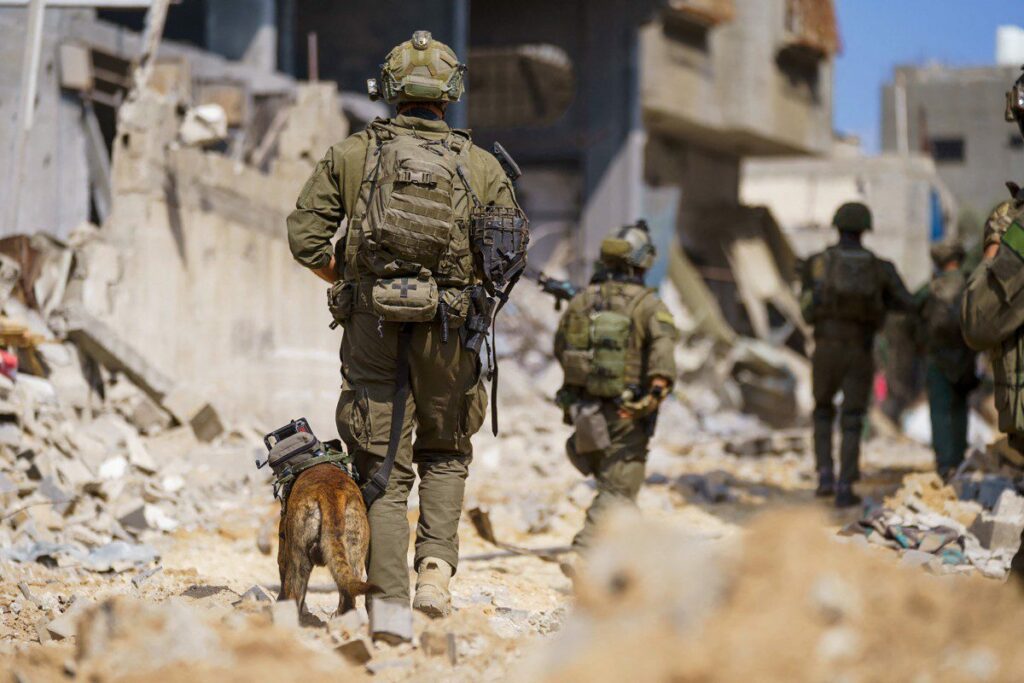
The Tale of “The Most Moral Army in the World”
Among the claims circulated in Western media and political circles is the assertion that the Israeli army is “the most moral army in the world.” This description, heavily promoted by Israeli leaders and their international supporters, including politicians, media figures, and retired officers and generals, aims to present an ideal image of the Israeli army’s performance in the ongoing Israeli-Palestinian conflict, particularly concerning its adherence to the laws of war and the protection of human rights. This hollow phrase continues to be upheld despite accumulating evidence pointing to acts of genocide in Gaza and severe violations of those laws in both Gaza and the West Bank.
One of the most striking phenomena resulting from the Israeli war on Gaza is the increasing number of videos showing Israeli soldiers committing acts that fall under the category of crimes against humanity, a phenomenon that continues without deterrent.
What drives an increasing number of Israeli soldiers to commit such atrocities and document them themselves?
What strategies does Israel employ to shape and mold the Israeli human self, producing this model of a soldier who commits horrific acts?
The search for an answer must start with the policy of dehumanizing Palestinians. Once a mindset capable of demonizing the other is established, it becomes easy to violate their body, either through direct killing or torture, and their property, whether through confiscation, demolition, or vandalism.
Numerous videos have spread in recent months showing Israeli soldiers engaging in such practices. The violation of Palestinian property has extended to the confiscation of their men’s and women’s clothing, even their underwear, as if they were spoils of war. The soldiers themselves post videos and photos proving these violations on their personal social media pages.
According to Adama Dieng, the UN Special Adviser on the Prevention of Genocide and former Registrar of the International Criminal Tribunal for Rwanda: “Genocide is not an accidental event, nor is it inevitable. Genocide is a process that develops over time. To be able to engage in the level of violence associated with genocide, perpetrators need time to develop the capacity to do so, mobilize resources, and take concrete steps that will help them achieve their goal.”
A Zionist Strategy to Entrench Extremism and Racism
No individual, no matter how extreme their ideas may be, can commit heinous crimes on their own. Committing individual murder is not easy, let alone mass murder.
The process of transforming extremist ideas—whether Zionist, Islamic, or otherwise—into actions that reach the level of genocide requires a massive apparatus for propaganda, recruitment, mobilization, funding, planning, and execution. Without this apparatus, these ideas remain limited in scope, regardless of the crimes committed.
An integral part of this process, which paves the way for turning extremist ideas into tools for mass killing, is establishing a psychological and social strategy that removes guilt and responsibility from the individual. Genocide is not an end in itself but a means to achieve a larger goal. Such a strategy has found unparalleled success in Israel today.
In practice, the Israeli authorities, in collaboration with the media, quickly dehumanized the people of Gaza following the “Al-Aqsa Flood” operation on October 7, 2023, carried out by Hamas. This operation, which resulted in the deaths of hundreds of Israelis, including civilians, provided the basis for a massive propaganda campaign against Palestinians. This campaign was aided by the dissemination of lies that helped mobilize Israelis and garner international sympathy for Israel’s reaction, no matter how excessive.
One of the most prominent lies was the claim that 40 children were beheaded in Kibbutz Kfar Aza, a lie spread so widely that US President Joe Biden mentioned it before the White House denied his statement. The Israeli government’s media office itself denied this lie. However, the damage caused by these lies cannot be undone.
The transformation of an Israeli individual into a criminal participating in genocide, whether directly as a soldier or indirectly as a justifier, does not only involve immediate emotional reactions. It goes through several stages of normalization with violence, starting from living in closed environments where individuals adapt to similar patterns of collective behavior, to the separation and discrimination between Palestinian Arab and Jewish children in the education system.
Zama Neff, executive director of the Children’s Rights Division at Human Rights Watch, says: “There is a wide gap separating government-run Jewish and Arab schools; the education that Palestinian Arab children receive is inferior in almost every respect to that of their Jewish counterparts, which is reflected in the relatively poor performance of Arab students.”
A Human Rights Watch report titled “Second-Class Citizens: Discrimination Against Palestinian Arab Children in Israel’s Schools” states: “The Israeli government operates two separate school systems, one for Jewish children and one for Palestinian Arab children. Discrimination against Palestinian Arab children colors every aspect of the two systems.” The report further elaborates: “From their first day in kindergarten until they reach university, Palestinian Arab and Jewish children almost always attend separate schools. Palestinian Arab children are taught in Arabic, Jewish children in Hebrew. The two systems’ curricula are similar but not identical. For example, Hebrew is taught as a second language in Arab schools, while Jewish students are not required to study Arabic.”
The first steps in establishing this psychological and social strategy, aimed at turning Israelis into people who view Palestinians with racist superiority, involve institutionalizing apartheid in education.
Palestinian Arab children are forced to learn both Arabic and Hebrew, while Jewish children learn only Hebrew. This cultural integration does not go one way. Not teaching Arabic to Jewish children strips them of the ability to see the scene through Palestinian Arab eyes, criticize Zionist ideology, and exchange feelings and opinions equally.
This weakens their human empathy and finding common ground against a common enemy, where the contradiction between “Palestinian” and “Israeli” remains. This instead could transform into a contradiction between a landowner and another who could support him against the apartheid and occupation state, which robs the first of his life, land, and human dignity, and the second of his humanity and ability to criticize the racist Zionist ideology.
In addition to the education system, many Jewish children, of various ages, are subjected to “brainwashing” through extreme right-wing media, publications, and daily advertisements. However, families play the most crucial role in maintaining the cohesion of Israeli settler society. They form the fundamental unit for recruitment, especially in tight-knit and conservative communities where Jewish children are taught to view Palestinian Arabs with enmity.
In areas where social relations and lifestyles vary, and Jews and Arabs “coexist” in one way or another, building friendships and social relationships due to economic cooperation and production, personal beliefs play a modest role in influencing the views of Jewish families and their children towards Palestinian Arabs. While racial hatred continues in different forms, it manifests less intensely in many closed and isolated settlements.
As long as the Israeli individual does not fully assimilate into the broader community ready to obey higher orders and conform to the prevailing culture without any criticism, they maintain a margin of the ability for human empathy and communication with Palestinian Arabs. This simple margin of freedom of thought in some areas is what the extreme right-wing Israeli camp today seeks to eliminate.
Israelis are forced to join the army upon reaching 18, as conscription is mandatory and considered a cornerstone of the upbringing and training strategy. An individual is not considered truly Israeli in the eyes of the state if they are not capable of using weapons and following orders. Mandatory conscription includes all Jews, including Haredim who refuse conscription for religious reasons (A recent decision by the Israeli Supreme Court ruled to end their exemption from military service and ordered the immediate conscription of 3,000 students) , in addition to Druze and Circassians. However, Palestinian Arabs are completely excluded, allowed only to volunteer (most Arab volunteers are Bedouin).
This exclusion is portrayed as a privilege for Arabs, but it is actually to avoid conflicting loyalties and instances of rebellion.
New recruits undergo intensive training and “psychological programming” to become ready to participate in killing, coinciding with the escalating extreme right-wing rhetoric from Israeli politicians. Starting with Israeli Prime Minister Benjamin Netanyahu comparing Palestinian Arabs to the Amalekites, implying that they should be killed and exterminated because they pose an existential threat to Jews, to the call of the leader of the “Jewish Leadership” faction (one of the most conservative of currents in the Likud), Moshe Feiglin, to completely destroy the Gaza Strip, in addition to calls to expel all the residents of the strip and turn it into a huge tourist resort complex. These are in addition to calls for the displacement of all residents of the Gaza Strip and its transformation into a massive resort complex (the most brazen of which came from Daniella Weiss, a far-right activist in the Israeli Orthodox Zionist settlement movement), or calls to use nuclear weapons in the Gaza Strip, rendering it a place “where no one can live.” The most prominent of these calls came from the far-right Israeli Heritage Minister Amihai Eliyahu (who was subsequently barred from attending Israeli government meetings following this statement), along with a call from U.S. Senator Lindsey Graham of South Carolina to bomb Gaza with a nuclear weapon, akin to how the United States ended World War II by bombing the Japanese cities of Hiroshima and Nagasaki with atomic bombs. There were also explicit and public calls to commit war crimes against the residents of the Gaza Strip and to intensify the supply blockade on it. The most notable of these calls came from Israeli Knesset Deputy Speaker Nissim Vaturi, who did not hesitate to reaffirm his calls to “burn Gaza” and “kill everyone who does not leave northern Gaza,” despite the significant global outrage that these statements provoked.
Alongside all this incitement, political, military, and legal authorities provide protection for soldiers and officers, absolving them of responsibility regardless of the individual and collective crimes they commit on the “battlefield,” even if they go so far as to film their violations against Palestinian property themselves and publish them on their personal pages.
These violations could not reach this level of brazenness without the collapse of all moral barriers due to the systematic normalization of the Israeli army with the culture of violence against Palestinian Arabs.
This reality is contrasted with a bright picture of gender equality, individual freedom, and moral superiority of the soldiers that Israel tries to sell to the West. Journalists and Western officers enthusiastically repeat the phrase “the Israeli army is the most moral army in the world” (Perhaps the former commander of British forces in Afghanistan, Colonel Richard Kemp, is the most brazen and foolish in repeating Israeli war propaganda), relying on misleading information that completely contradicts the information provided by international human rights organizations about what this army commits that “can amount to genocide.”
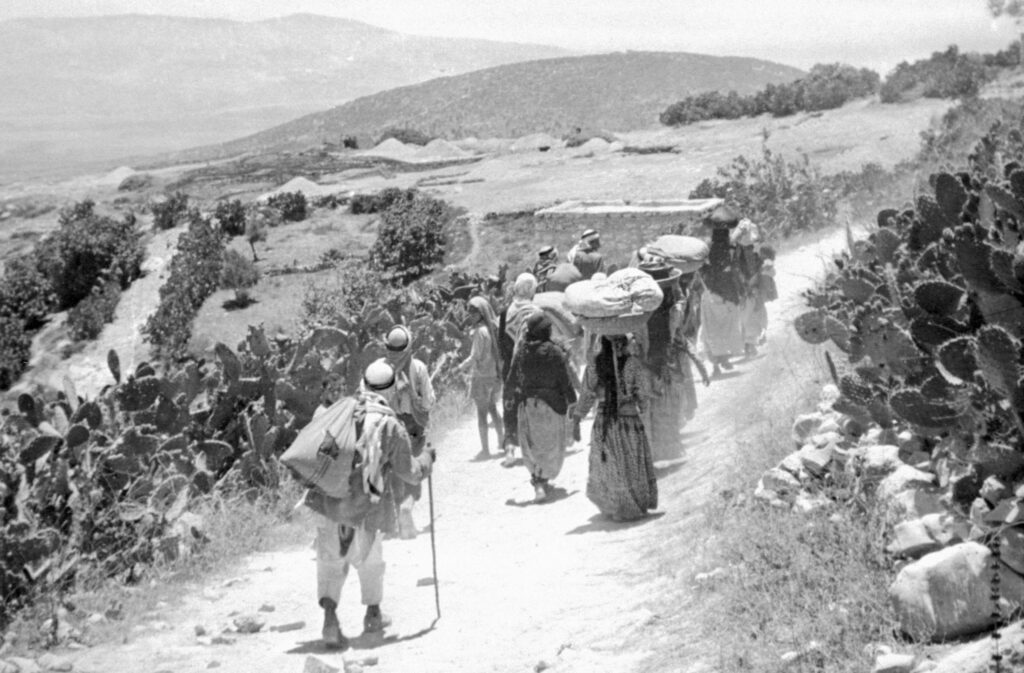
A Compelling Comparison: Nazism and the Zionist Movement
Israel has not only ignored international laws but has openly declared war on the United Nations, starting from not recognizing its resolutions (not just ignoring their implementation) to threatening its employees, mistreating them, and targeting its centers with bombardment. According to the UNRWA Situation Report No. 114, dated June 21, 2024, 193 agency workers and employees have been killed, and 187 of its facilities have been partially or totally destroyed since October 7, 2023.
Israel’s actions bear a striking resemblance to Nazi behavior in their disregard for the international community. Israel acts with narcissism and manipulation to achieve its interests, making its future withdrawal from international bodies likely. Interestingly, the first foreign policy move made by Adolf Hitler after the Nazis came to power was withdrawing from the League of Nations on October 19, 1933.
Ironically, the concept of “genocide” was first established by Polish Jewish lawyer Raphael Lemkin. He began writing on the subject by documenting the Ottoman genocide of Armenians (1915) and advocating for international laws to prosecute its perpetrators. He then documented the Iraqi genocide against the Assyrian minority in northern Iraq (Simele massacres, 1933) years before the Nazi genocide of Jews (1941).
The Nazis killed Lemkin’s family during the Holocaust, prompting him to flee to the United States where he continued his work and led lobbying campaigns for laws to prosecute those accused of genocide. His efforts led to the United Nations adopting the Convention on the Prevention and Punishment of the Crime of Genocide in 1948. Were Lemkin alive today, he would undoubtedly accuse Israel of committing genocide and lead international lobbying campaigns to punish it.
German-American Jewish philosopher Hannah Arendt explored the similarities between the atrocities committed by the Nazis and those committed by the Zionists, as well as the similarities between Nazi and Zionist ideologies. Some Zionist thinkers even labeled her a “self-hating Jew” for her views. Her 1963 book “Eichmann in Jerusalem: A Report on the Banality of Evil” was influenced by her attendance at Adolf Eichmann’s trial in occupied Jerusalem.
Eichmann, one of the Nazi leaders who organized the Holocaust, was kidnapped by Israeli Mossad agents from a suburb of Buenos Aires on May 11, 1960.
In her book, Arendt mentions that Eichmann’s superior in the SS, von Mildenstein, asked him to read Theodor Herzl’s “The Jewish State.” At the time, Eichmann was a simple and naive man who was so impressed by Herzl’s ideas that the book “instantly and forever turned him into a Zionist,” as Arendt notes (Chapter 3, page 23).
Eichmann expressed great respect for Zionist Jews exclusively, considering them “ideal” Jews who matched his Nazi criteria for the perfect human (Chapter 4, page 30). He viewed other Jews as “rabble” or a Jewish mob (Chapter 3, page 25).
Arendt also attempts to debunk the Zionist movement’s claim that the only resistance to the Nazis was Zionist resistance. Despite the modesty of the resistance at that time against the Nazi might, these false claims represent a Zionist appropriation of Jewish history. She notes that “all Jewish organizations and parties played their part in the resistance, and thus the real distinction was not between Zionists and non-Zionists, but between organized and unorganized people” (Chapter 7, page 60).
Arendt repeatedly highlights the unique nature of the relationship between the Zionist movement and Nazi authorities. She states (translated directly from the book): “As it became clear that the Zionist officials in Hungary received greater privileges than the usual temporary immunity from arrest and deportation granted to members of the Jewish Council, Zionists were free to come and go as they pleased, exempted from wearing the yellow star, and obtained permits to visit concentration camps in Hungary. Shortly thereafter, Dr. Kastner, the original founder of the Relief and Rescue Committee, was able to travel around Nazi Germany without any identification papers proving he was Jewish” (Chapter 12, page 94).
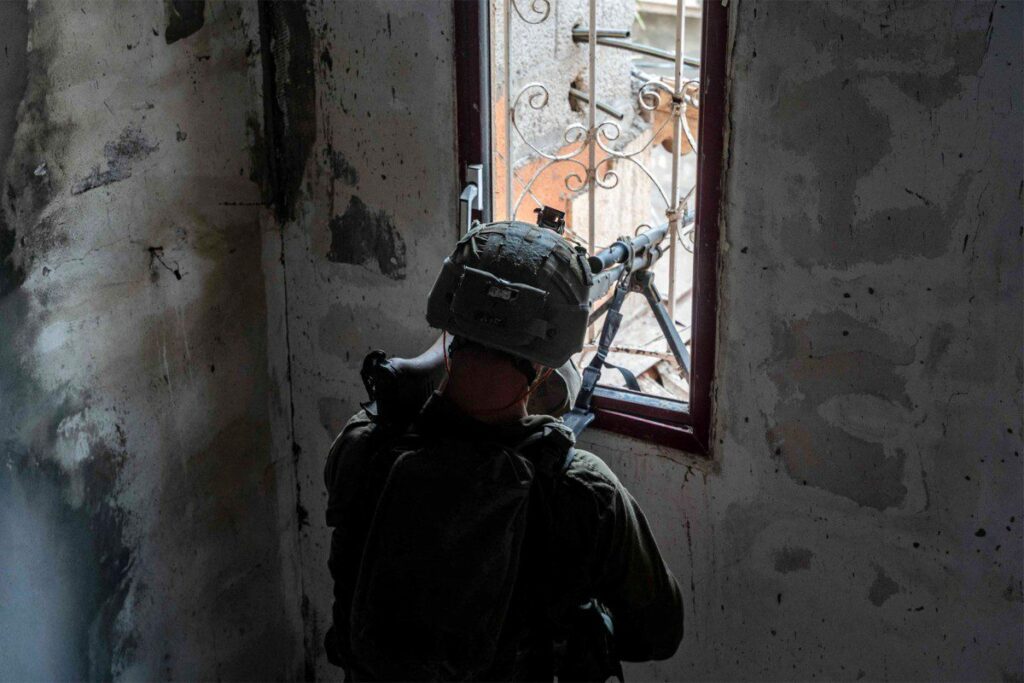
Stanley Milgram’s Experiments: Do They Explain the Absolute Obedience of Israeli Soldiers to Their Commanders, Even in the Most Harsh and Testing Humanitarian Circumstances?
In 1961, social psychologist Stanley Milgram at Yale University conducted a study on the psychological impact of authority and obedience. This study involved 40 men aged between 20 and 50, from various professional backgrounds. The experiment required participants to “torture” a “person” in another room by administering electric shocks, increasing the voltage for each wrong answer up to 450 volts, which is double the strength of household current. The “victim” was actually an accomplice of Milgram’s, pretending to be in pain, and sometimes stopped responding, leading participants to believe they had lost consciousness or even died. Despite this, Milgram instructed participants to continue and administer more shocks. Although they hesitated momentarily, most of them (two-thirds) reached the maximum voltage of 450 volts and repeated its use multiple times after being informed that they would not bear legal responsibility if the “victim” died or suffered any harm. The removal of legal responsibility was enough for them to give themselves the “right” to commit the act, despite their initial opposition and feelings of sorrow and guilt.
Milgram’s observations from the study reveal the following:
“The experiment yielded two surprising outcomes. The first outcome relates to the absolute power of obedient tendencies manifested in this situation. Participants learned from childhood that it is a fundamental violation of moral conduct to harm another person against their will. However, 26 of them abandoned this principle, following the instructions of a person who had no special authority to enforce his orders. Disobedience to these orders would not have brought any material loss to them; there would have been no punishment. It is clear from the observations and the external behavior of many participants that, by punishing the victim, they often acted contrary to their own values. Participants often expressed deep reluctance to administer electric shocks to the man in response to his objections. Others condemned it as stupid and meaningless, yet the majority complied with the experimenter’s orders.”
Milgram continues:
“The second unexpected effect was the extraordinary tension generated by the procedures. One might assume that the actor would simply stop or continue as their conscience dictates. However, this is far from what happened. There were astounding reactions of tension and emotional stress.”
Milgram conducted this study after being influenced by Adolf Eichmann’s trial, where Eichmann, on his way to the gallows, was calm and convinced of the correctness of his crimes. Just moments before his death, he said: “I tried to comply with the laws of war and the flag of my country.” In the United Press International archives dated June 1, 1962, one day after his execution by hanging, Eichmann claimed at his trial that “he was merely a small cog in the Nazi machine.” In his final plea for mercy, he blamed the massacre on “other Nazi leaders whose identities he did not disclose.”
How many Adolf Eichmanns, convinced that they are “merely small cogs in the Zionist machine,” exist among Israeli leaders and officers today, fully convinced that they bear no responsibility for the decisions and orders they execute without accountability?
A Long History of Dehumanizing Arabs and Palestinians
In a 2006 article by Bhoniapria Dasgupta titled “Israel’s Foes as Beasts and Insects,” Dasgupta wrote: “Immediately after the 1967 war Robin Maxwell-Hyslop, a British Conservative, recounted in the House of Commons a conversation he had with David Hacohen, one-time Israeli ambassador to Burma. As related by Maxwell-Hyslop, Hacohen “spoke with great intemperance and at great length about the Arabs. When he drew breath I was constrained to say: “Dr Hacohen, I am profoundly shocked that you should speak of other human beings in terms similar to those in which Julius Streicher [notorious Nazi propagandist] spoke of the Jews. Have you learned nothing?” I shall remember his reply to my dying day. He smote the table with both hands and said: “But they are not human beings, they are not people, they are Arabs”.” One of the many things Israeli spokesmen seem incapable of realizing is that abuse is no substitute for reason. Israel has amassed much military prowess but remains very poor in logic.”
In 2013, Israeli Deputy Defense Minister Eli Ben-Dahan made a similar statement in a radio interview, bluntly saying: “To me, Palestinians are like animals, not humans.” There are many similar examples between 1967 and 2013, and even before and after those years.
Therefore, the statements by Israeli officials that dehumanize Palestinian Arabs and aim to establish an “animalistic” stereotype against them are not new. They did not come as a spontaneous reaction to the events of October 7, as in the case of Israeli Defense Minister Yoav Gallant’s statement two days later, describing the people of Gaza as “human animals” and announcing a total blockade of the sector, preventing electricity, water, and energy materials from entering. Rather, this is a historically systematic and adopted rhetoric, part of a comprehensive strategy where apartheid is just one aspect.
The Prevailing Narratives: Zionist and Islamist Extremism
The Israeli narrative labels Palestinian children as “terrorists” simply because their birth in a particular place in this world forces them to grow up in violent and oppressive conditions. Many will inevitably become rebellious against the violence and oppression that haunt them from cradle to grave. This narrative thus legitimizes the killing of children and the occupation and destruction of property by soldiers and settlers without punishment or even the need for guilt or conscience because these children are future “terrorists” and “human monsters.” In the Zionist narrative, the Palestinian is inherently “savage,” while Israel represents a paradise of culture, democracy, and humanity.
However, this dehumanizing narrative is mirrored by an extremist Islamic narrative, different in form but essentially identical in essence. It views any Israeli as a killer and a criminal, justifying retribution even against a child who has not yet developed language and communication skills, or an ally of the Palestinian cause, or someone refusing to fight against Palestinians, or someone advocating for the dismantling of the Zionist state from advanced intellectual, political, and humanitarian positions.
In both narratives, the human intellect is replaced by genuine barbaric emotions and thoughts, forming a step towards genocide, as is happening right now and has been for months. One of the prerequisites for such a major crime is stripping the “other” of their humanity and considering them a different kind of being undeserving of life. However, the fundamental condition for genocide, alongside other remaining conditions and factors, is possessing the capabilities and resources—both material and human—and the ability to plan and execute mass and indiscriminate killings, in addition to political cover. This is exactly what the Zionists have, and what the fundamentalist Islamic currents lack.
The translation is clear and well-structured, making it easy to read and understand. Here’s a slightly refined version for improved flow:
The Possibility of Separating the Future of the “Israeli Human” from the Zionist Movement
Many opinions suggest that the Zionist movement and the Nazi regime achieved mutual goals: the former by occupying Palestine and the latter through the genocide of European Jews. This argument follows an increasing context of incitement in Israeli society and acts of genocide in Gaza. Amid escalating incitement in Israeli society and the continuation of genocidal acts, especially after the complete destruction of the Rafah crossing—the only breathing space for the Gaza Strip—and the deeper infiltration of the far-right into the body of the Israeli state, which is witnessing a profound transformation towards fascism, resulting in security repercussions and explosions in the West Bank and Jerusalem, the “Israeli human” will eventually find themselves facing three options:
The first option is to engage in the vicious cycle of violence from a reactionary position, actively fueling the rising fascist trajectory, which will only result in more atrocities and horrors that could affect the entire region, not just Palestinians and Israelis.
The second option is a personal solution: seeking a safe haven far from the burning region. This is the weakest option amidst the dominance of far-right forces and holds little value as it reinforces their control and the fascist direction of the state, which will face little internal resistance.
The third and final option is for larger Israeli masses to be convinced of the failure of the “Zionist experiment” and the necessity of a joint struggle with Palestinians to dismantle the Zionist state, trampling its barren ideology, which in its essence rejects any “other,” akin to Nazism and fundamentalist Islam. This would ensure the Arab Palestinians’ right of return to their land and all their human and historical rights, while also averting a new “Holocaust” for Jews who grow more extremist in the wrong direction, as the far-right Zionist movement exploits the historical crime to instill fear in them.
The rising anti-Zionist Jewish voice in the West to its highest level is a tangible beginning of a real, long, and complex path that could, in the future, lead to the Israeli society splitting into two conflicting blocs over the viability of continuing the current model, whether this future is near or far. Subsequently, the rise of the Islamic and Arab voice opposing the Zionist state will not be far off. This voice will simultaneously denounce fundamentalist Islam, which has hollowed out the Palestinian cause from its humanitarian foundation and real dimension, turning it into a rigid defense of religious sanctities on one hand and random, empty incitement against the “infidel nation” on the other.
Published on 01.07.2024


